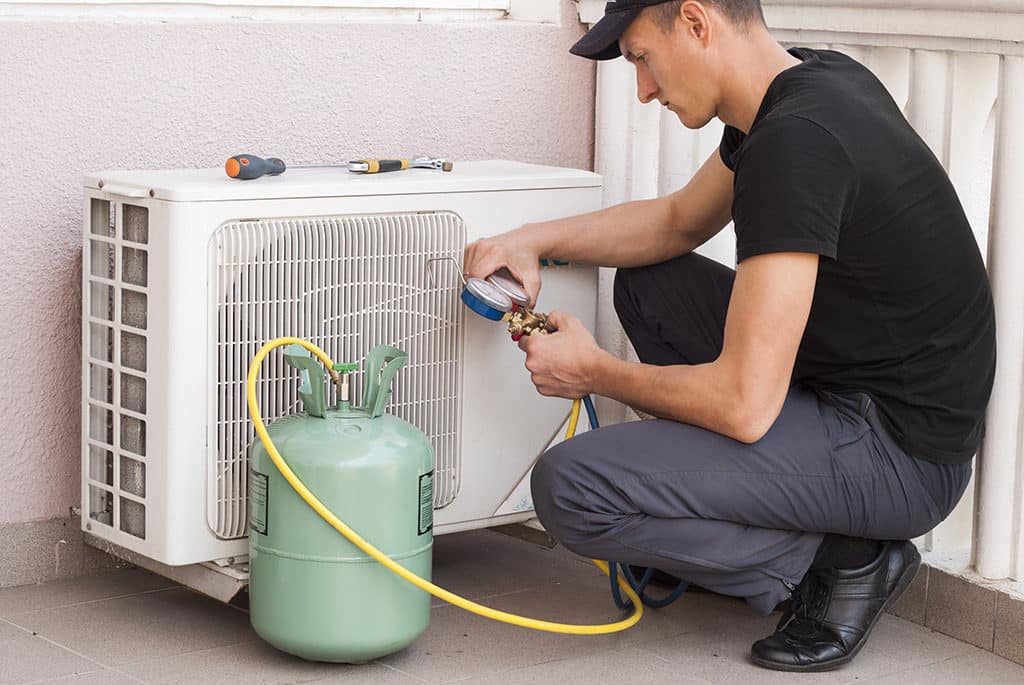
A frozen air conditioner is a frustrating problem, especially during hot weather. It can lead to uncomfortable temperatures, higher energy bills, and potentially costly repairs. Fortunately, understanding the causes and taking proactive steps can help you prevent this issue.
Why Does My Air Conditioner Freeze Up?
Several factors contribute to a frozen air conditioner. The most common culprit is restricted airflow. When the air flowing over the evaporator coil is limited, the temperature drops too low, causing the moisture in the air to freeze. This can happen due to a dirty air filter, closed vents, or blocked return air registers.
Another potential cause is low refrigerant levels. Refrigerant absorbs heat from the air, and when levels are low, the evaporator coil becomes too cold. However, it’s important to note that refrigerant doesn’t get “used up” – low levels typically indicate a leak, which requires professional attention.
In some cases, mechanical problems within the air conditioner can also lead to freezing. That’s the time you need to call a AC repair company near you. A malfunctioning fan, a faulty thermostat, or a broken compressor can all disrupt the normal cooling process and cause ice to form.
Maintaining Proper Airflow: The Key to Prevention
The most effective way to prevent your air conditioner from freezing is to maintain proper airflow. This involves several crucial steps:
- Change the Air Filter Regularly: A dirty air filter restricts airflow and forces your air conditioner to work harder. Check your filter monthly and replace it at least every three months, or more often if it appears dirty.
- Keep Vents and Registers Open: Ensure all supply and return air vents and registers are open and unobstructed. Don’t close more than 20% of the vents in your home, as this can significantly reduce airflow.
- Clean Around the Outdoor Unit: Remove any debris, leaves, or grass clippings that might be blocking the airflow around the outdoor condenser unit. Maintain a clearance of at least two feet on all sides.
Other Preventive Measures
In addition to maintaining airflow, there are other steps you can take to prevent your air conditioner from freezing:
- Schedule Regular Maintenance: Have a qualified HVAC technician inspect and service your air conditioner annually. They can check refrigerant levels, clean the coils, and identify potential problems before they escalate.
- Don’t Run the AC When It’s Cold: Avoid running your air conditioner when the outdoor temperature is below 60°F (16°C). The evaporator coil can become too cold in these conditions, increasing the risk of freezing.
- Monitor Refrigerant Levels: If you suspect a refrigerant leak, have it repaired promptly by a professional. Low refrigerant levels not only cause freezing but also reduce your air conditioner’s efficiency.
Troubleshooting a Frozen Air Conditioner
If your air conditioner does freeze up, here’s what you should do:
- Turn Off the AC: Switch off your air conditioner immediately to allow the ice to melt. You can use a fan to circulate air and speed up the thawing process.
- Check the Air Filter: Replace the air filter if it’s dirty.
- Clear Obstructions: Ensure all vents and registers are open and unobstructed.
- Inspect the Outdoor Unit: Remove any debris or blockage around the condenser unit.
- Call a Professional: If the problem persists or you suspect a refrigerant leak, call a qualified HVAC technician to diagnose and repair the issue.
Preventing Future Problems
By following these tips and taking proactive measures, you can significantly reduce the risk of your air conditioner freezing up. Remember, regular maintenance and proper airflow are essential for keeping your AC running smoothly and efficiently throughout the cooling season. That’s why its important have your local AC repair company in your service area is available to service your ac unit.




